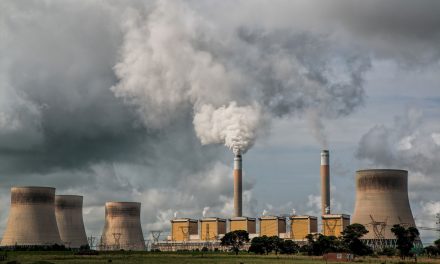US President Donald Trump will officially begin to withdraw the US from the Paris climate accord, keeping to his promise, which he made in 2017 and making the US the only country in the world not to be part of international efforts to tackle climate change.
The process of withdrawing from the agreement will start on November 4th and is expected to be finalized one year later in 2020, just one day after the US presidential election.
“I withdrew the United States from the terrible, one-sided Paris Climate accord. It was a total disaster. I was elected to represent the citizens of Pittsburgh, not Paris,” Trump told crowds gathered at a natural gas event in Pittsburgh surrounded by men in hard hats.
A White House speech on Wednesday mirrored Trump’s incendiary language about the agreement.
“The President announced he is pulling the United States out of the fraudulent, ineffective, and one-sided Paris Climate Accord,” the White House readout said.
A White House spokesman when asked by a reporter from the Hill when the formal withdrawal will begin then said, “the president has already announced the US withdraw from the disastrous Paris Climate Accord.”
The 2015 agreement would have required the US to reduce emissions by 28% below 2005 levels by 2025. The US official withdrawal comes just a few months before a summit in Chile where world leaders will try and work out what to do about the climate emergency.
Trump’s rejection of the Paris agreement has been widely criticised by Democrats and environmentalists as well as some Republicans who understand that urgent action is required to start trying to slow down the worst effects of climate change. Many also argue that the US abdicating its responsibility and global leadership.
Most US diplomats are also frustrated at the Trump administration just closing the door and walking away from a global problem as it shows a complete lack of leadership.
Train Wreck of US Diplomacy
“It will take some time to recover from this train wreck of US diplomacy,” said Andrew Light, a former State Department official, who helped broker the Paris agreement.
But while many Republicans have changed their rhetoric about climate change, a fair number of them still remain opposed to the Paris deal and think the US should not just sign up to concessions without getting other countries like India and China to make more of an effort to reduce their emissions. However, both India and China have said they intend to meet their agreements under Paris and are in discussions with world partners about how to do that.
For Democrats recommitting the US to Paris is now a must for anyone running for President in the 2020 election, and most of those running have said it’s the first thing they’d do.
Trump also faces a backlash from individual US states that are campaigning against his policies, particularly California which has a strong record of tough environmental laws and has locked horns with the President about his plans to try and water down the state’s clean air standards.
The Democrat-controlled House of Representatives has already passed a resolution in May to try and prevent Trump walking away from the Paris agreement but the Republican-controlled Senate, the upper house, has said that the bill will not be passed by them. This means that the only chance of the US reducing its emissions and re-joining the global community is to vote in a new president next year.
At the moment the biggest negative effect of the US pulling out of Paris has been to relax pressure on Brazil and Saudi Arabia. Both are still signed up to Paris but are considering pulling out.
Trump meanwhile has promised to make America an energy superpower. As well as getting rid of countless laws that protect the environment in the US, he is also supporting the fossil fuel industries as much as he can.
While the US oil and gas industries are thriving, including offshore and shale gas, the coal industry, which Trump pledged to resurrect, remains in the doldrums and investors are reluctant to put money into it as whatever trump does coal-burning technology is expected to have a limited life span.
- Why is California So at Risk from Wildfires? - 13th November 2019
- Carbon Offsetting is Growing but Does it Make a Difference? - 11th November 2019
- Three Confirmed Dead as Australia Prepares for “Catastrophic” Bushfires - 11th November 2019






